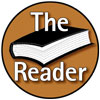by Vicky Dickson

As a student at the Moody Bible Institute in the 1970s, Bart Ehrman would surely have found it inconceivable that he would one day write a book called Forged: Writing in the Name of God – Why the Bible’s Authors Are Not Who We Think They Are. A conservative evangelical who’d become born-again at the age of 15, Ehrman did aspire, back then, to teach at a state university – though there weren’t many evangelicals going that route – but he would not have imagined that he’d eventually teach the New Testament, at UNC, as a “very human book.†Or become an agnostic.

To understand Ehrman’s journey, it helps to know that the James A. Gray Distinguished Professor of Religious Studies believes that “knowledge is the most important thing that we have.†That belief steered him from Moody to Wheaton College, and then to Princeton Theological Seminary. It led him to study Greek, so that he could read the New Testament in the language in which it was originally written. When the knowledge he gained from his studies convinced him that “the Bible could not be what I thought it was †– a revelation irreconcilable with the evangelical Christianity Ehrman then practiced – it led him to become a liberal Christian.
Though Ehrman’s Christianity has since given way to agnosticism – he found he also could not reconcile human suffering with his belief in a just and loving god – the professor continues to find the New Testament “terrifically interesting and terrifically important.†He’s published more than 20 books on the subject and enjoys being able to share the results of his research with his students: “Teaching is one of the perks of the job,†he says. You’ll even find him sharing knowledge at his Wednesday “office hours†at Carrboro’s Armadillo Grill.
In part, Ehrman wants to share his findings because he wants laymen to understand what biblical scholars have known, in some cases, for centuries: that the New Testament contains inconsistencies and historical inaccuracies. He wants them to ask, as scholars have asked, whether it’s really likely that an uneducated, Aramaic-speaking fisherman like Peter could have written the Greek letter that appears in the Bible as 1 Peter. Or why the Apostle Paul would have declared in 1 Corinthians that single people should remain single, as the apostle was, and then turn around to insist, in 1 Timothy, that church leaders be married.
Because such discrepancies suggest not only that the authors of some New Testament books are not who they claim to be, but that they may also include authors with different beliefs and agendas from the people whose work they forge, it’s important to take these questions seriously. Not just for the sake of historical accuracy, significant as that is, but because modern-day practices and beliefs may be based on those forgeries.
Ehrman points out that religious beliefs about the proper relationship of the sexes may have been shaped by the lines in 1 Timothy that exhort women to be silent and submissive. 1 Timothy claims to be a letter from Paul to Timothy, and among the reasons to think it a forgery is the contradictory statement by Paul in Galatians 3:28 – which, according to Ehrman, scholars believe Paul himself did write – that, “In Christ there is neither slave nor free, neither male nor female.†Yet, as Ehrman notes, conservative Christian churches continue to deny women roles of authority, and some won’t even let women talk in church.
Ehrman also wants his students, and his readers, to understand the importance of situating ancient texts in their contexts so that what they say about subjects like homosexuality is not used inappropriately, for purposes of discrimination. He tries to emphasize in all his teachings that Jesus himself never talked about gays.
Though Ehrman’s belief is that Jesus is best understood as “a Jewish prophet with a message to proclaim that he thought was given by God,†the professor doesn’t try to “de-convert†the many students he has who come out of conservative Christian homes. He’s just trying to get them to think.
And in Forged, his most recent book, he gives his readers a great deal to think about.
LIT NOTES
The “Meet the Authors†lunch series at Flyleaf Books looks like a great new way to spend a lunch hour. For $25, you’ll get not only a catered lunch and a $14 Flyleaf gift certificate but also the opportunity to chat with some intriguing authors. From 12-1 p.m. on May 13, the Lethal Ladies – mystery writers Kate Carlisle, Elizabeth Lynn Casey and Hannah Dennison – will hold forth. Then at noon on May 26, former Vogue.com editor Jenny Nelson will discuss her new novel, Georgia’s Kitchen. Check it out.
Fans of Chapel Hill’s Sarah Dessen will be excited to learn that the acclaimed author of young adult fiction will read from her new book, What Happened to Goodbye, at the Chatham County Community Library at 7 p.m. on May 26. The event is co-sponsored by McIntyre’s Fine Books, and 20 percent of book sale proceeds will be donated to the library to buy more books.